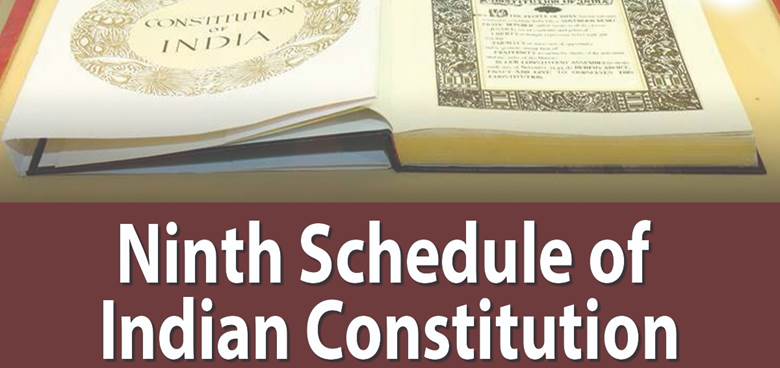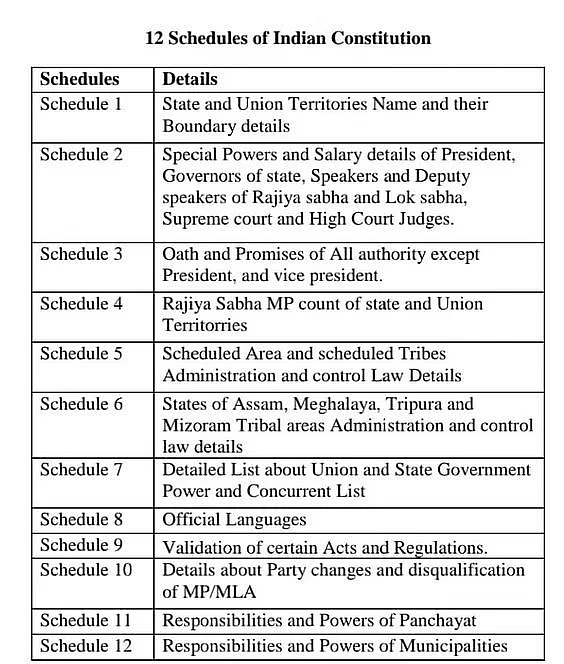Description

Copyright infringement not intended
In News
- The state Assembly of Jharkhand Assembly cleared two Bills;
- Increasing reservation in vacant government posts and services in the state to 77%.
- Use land records with 1932 as the cut-off year to determine domicile status and the definition of ‘residents’.
- The Chief Minister of Jharkhand said that the provisions of the bill would into force only after the Centre carried out amendments to include these in the 9th Schedule of the Indian Constitution.

Details
- The ‘Jharkhand Reservation of Vacancies in Posts and Services (Amendment) Bill, 2022’, raised the reservation limit to 77%.
- The Scheduled Castes will get a quota of 12%, up from 10%.
- 27% for OBCs, up from 14%.
- 28% for Scheduled Tribes, from 26%.
- 10% for Economically Weaker Sections.
- ‘Jharkhand Definition of Local Persons and for Extending the Consequential, Social, Cultural and Other Benefits to Such Local Persons Bill, 2022’, aimed at granting residents “certain rights, benefits, and preferential treatment” over their land.
Why State asked the Union to include the bill in the 9th Schedule?
- The 77% reservation breaches the 50% ceiling set by the Supreme Court in the 1992 Indra Sawhney v Union of India verdict. However, including legislation in the 9th Schedule protect it from judicial scrutiny.
- Not the 1st time
- The Tamil Nadu Backward Classes, Scheduled Castes and Scheduled Tribes (Reservation of Seats in Educational Institutions and Appointments or Posts in the Services under the State) Act, 1993, reserves 69% of the seats in colleges and jobs in the state government.
- When it ran into legal obstacles in the 1990s after the Supreme Court verdict, the then Chief Minister led a delegation to meet the then Prime Minister. The reservation provision was then included in the 9th Schedule.
What is the Ninth Schedule?
- After independence, zamindari abolition and land reform laws were passed, but the Government faced several problems, the land legislation was challenged in the various courts.
- The first case challenging the land law was Kameshwar Singh V/s State of Bihar, in this case, the Bihar Land Reforms Act 1950 was challenged on the ground that the classification of zamindars made to give compensation was discriminatory and denied equal protection of laws guaranteed to the citizen under Article 14 of the Constitution.
- The Patna High Court held this piece of legislation as violative of Article 14 as it classified the zamindars for payments of compensation in a discriminatory manner.
- As a result of these judicial pronouncements, the Government amended the Constitution in the year 1951 which inserted the 9th Schedule.
- The 9th Schedule contains a list of Union and state laws which cannot be challenged in court. Currently, 284 such laws are shielded from judicial review.
- Most of the laws protected under the Schedule concern agriculture/land issues.
- While the Ninth Schedule provides the law with a “safe harbour” from judicial review, the protection is not blanket.
- In IR Coelho v State of Tamil Nadu case, the Supreme Court ruled in a unanimous nine-judge verdict that while laws placed under Ninth Schedule cannot be challenged on the grounds of violation of fundamental rights, they can be challenged on the ground of violating the basic structure of the Constitution.
Schedules of the constitution
- Indian Constitution Schedules: Indian Constitution originally had eight schedules.
- Four more schedules were added by different amendments, now making a total tally of twelve.
- 1st Schedule - List of states and union territories and their territories.
- 2nd Schedule - The provisions to allowances, privileges, and emoluments of:
- The President
- Governors of State
- Speaker and the Deputy Speaker of the House of the People.
- The Chairman and the Deputy Chairman of the Council of States.
- The Speaker and the Deputy Speaker of the Legislative Assembly.
- The Chairman and the Deputy Chairman of the Legislative Council of a State.
- The Judges of the Supreme Court and the High Courts.
- The Comptroller and Auditor General of India.
- 3rd Schedule - It contains the forms of oath and affirmation for:
- Union Ministers of India
- Parliament Election Candidates
- Members of Parliament (MPs)
- Supreme Court Judges
- Comptroller and Auditor General
- State Ministers
- State Legislature Elections’ Candidates
- State Legislature Members
- High Court Judges
- 4th Schedule - Provisions as to the allocation of seats in Rajya Sabha.
- 5th Schedule - Provisions as to the Administration and Control of Scheduled Areas and Scheduled Tribes.
- 6th Schedule- Provisions as to the Administration of Tribal Areas in the States of Assam, Meghalaya, Tripura and Mizoram.
- 7th Schedule - Division of Power:
o Union list
o State list
o Concurrent list.
- 8th Schedule - It deals with the 22 official languages recognized by the constitution of India:
- 9th Schedule - Provisions as to the validation of certain Acts and Regulations.
- It deals with the state acts and regulations that deal with land reforms and the abolition of the zamindari system.
- It also deals with the acts and regulations of the Parliament dealing with other matters.
- 1st Amendment Act 1951 added the Ninth Schedule to protect the laws included in it from judicial scrutiny on the ground of violation of fundamental rights.
- However, in 2007, the Supreme Court ruled that the laws included in this schedule after April 24, 1973, are now open to judicial review.
- 10th Schedule- Provisions as to disqualification on the ground of defection.
- It contains provisions relating to the disqualification of the members of Parliament and State Legislatures on the ground of defection.
- This schedule was added by the 52nd Amendment Act of 1985, also known as the Anti-defection Law.
- 11th Schedule - Powers, authority and responsibilities of Panchayats.
- It contains the provisions that specify the powers, authority and responsibilities of Panchayats.
- It has 29 matters.
- This schedule was added by the 73rd Amendment Act of 1992.
- 12th Schedule - Powers, authority and responsibilities of Municipalities.
- It deals with the provisions that specify the powers, authority and responsibilities of Municipalities.
- It has 18 matters.
- This schedule was added by the 74th Amendment Act of 1992.

https://indianexpress.com/article/explained/jharkhand-new-quota-bill-what-is-ninth-schedule-of-constitution-8265015/
https://t.me/+hJqMV1O0se03Njk9














